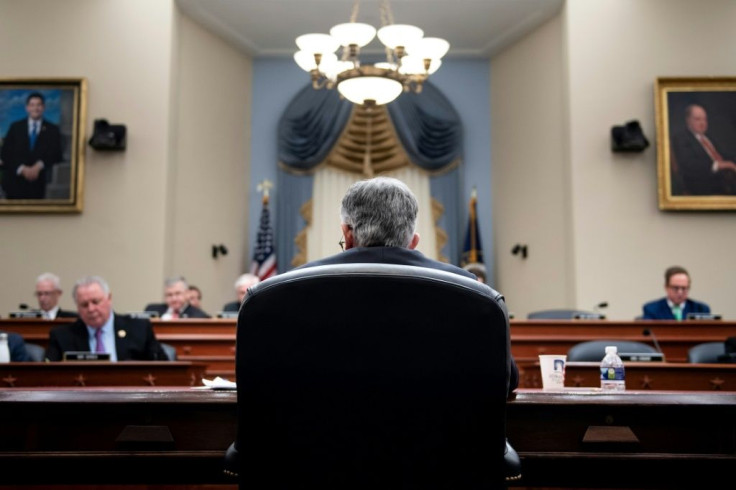Fed's Powell Said No 'Warning Signs' In US Economy

The US economy is a global standout at the moment, showing none of the signs of trouble that have preceded other recessions, at least not yet, Federal Reserve chief Jerome Powell said Thursday.
On a day when Germany and China each reported growth in the latest quarter of just 0.1 percent, Powell said, "the US economy is the star economy these days" with growth of about two percent.
And "there is no reason to think that cannot continue," he told the House Budget Committee, quickly adding that he was worried about "jinxing" the outlook.
In the final day of back-to-back appearances before Congress, Powell noted that while US manufacturing is in recession -- partly due to lingering trade tensions -- the consumer remains strong.
Consumer spending makes up 70 percent of the US economy and that has remained healthy, as wages have risen modestly and unemployment is at 50-year lows, bringing more Americans into the labor market, he said.
"That is what drives the economy," Powell said. But he said the Fed is monitoring "very carefully" to see if the tariff impact spills over to affect consumers.
The Fed raised the benchmark lending rate four times last year when the US economy appeared to be picking up steam. But as President Donald Trump's aggressive trade conflicts hit business investment and slowed manufacturing, the central bank reversed course and cut rates three times this year.
Powell reaffirmed in his two congressional appearances this week that the Fed will stand pat for a time to see how the economy develops.
But with the US expansion now in its 11th year, "in principle, there is no reason why it can't last. At the risk of jinxing us."
As the Fed carefully monitors financial markets and different sectors of the economy, "we don't see the kind of warning signs that appear in other cycles yet," he said.
© Copyright AFP {{Year}}. All rights reserved.




















